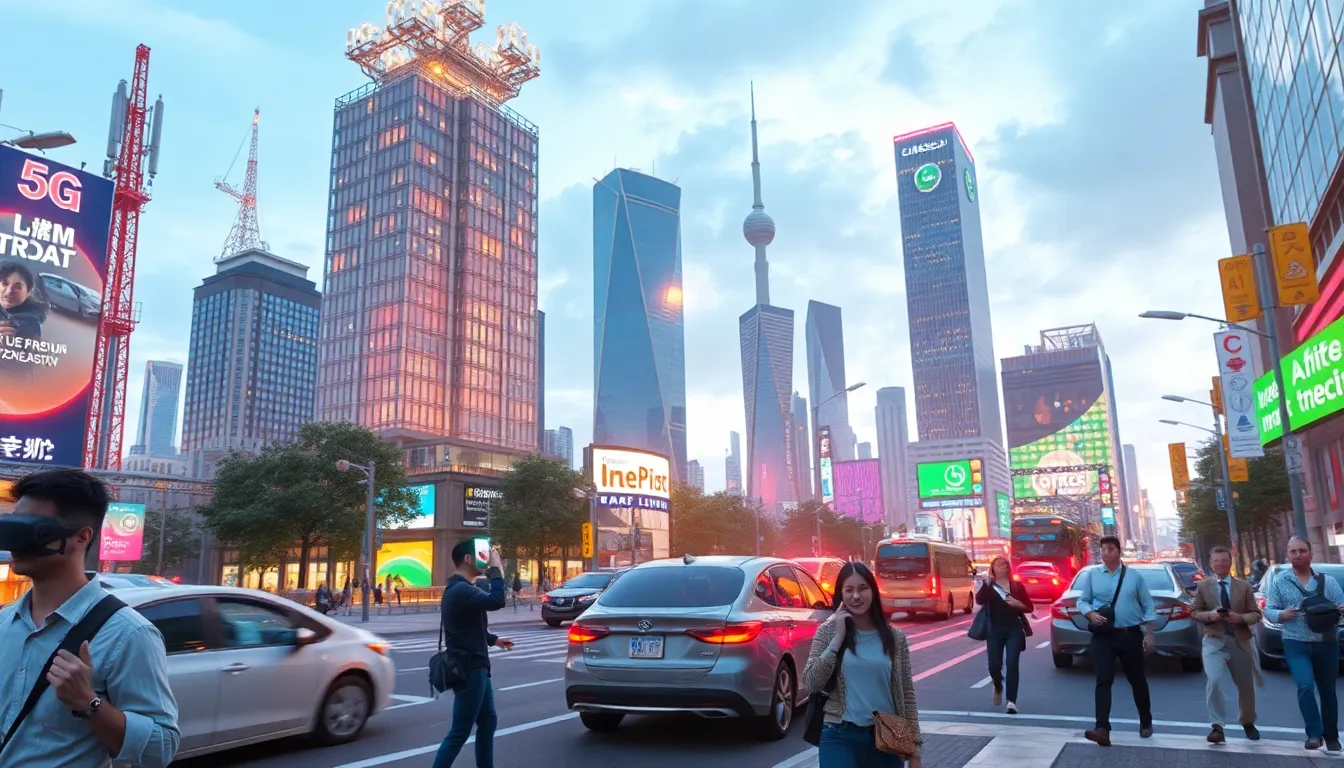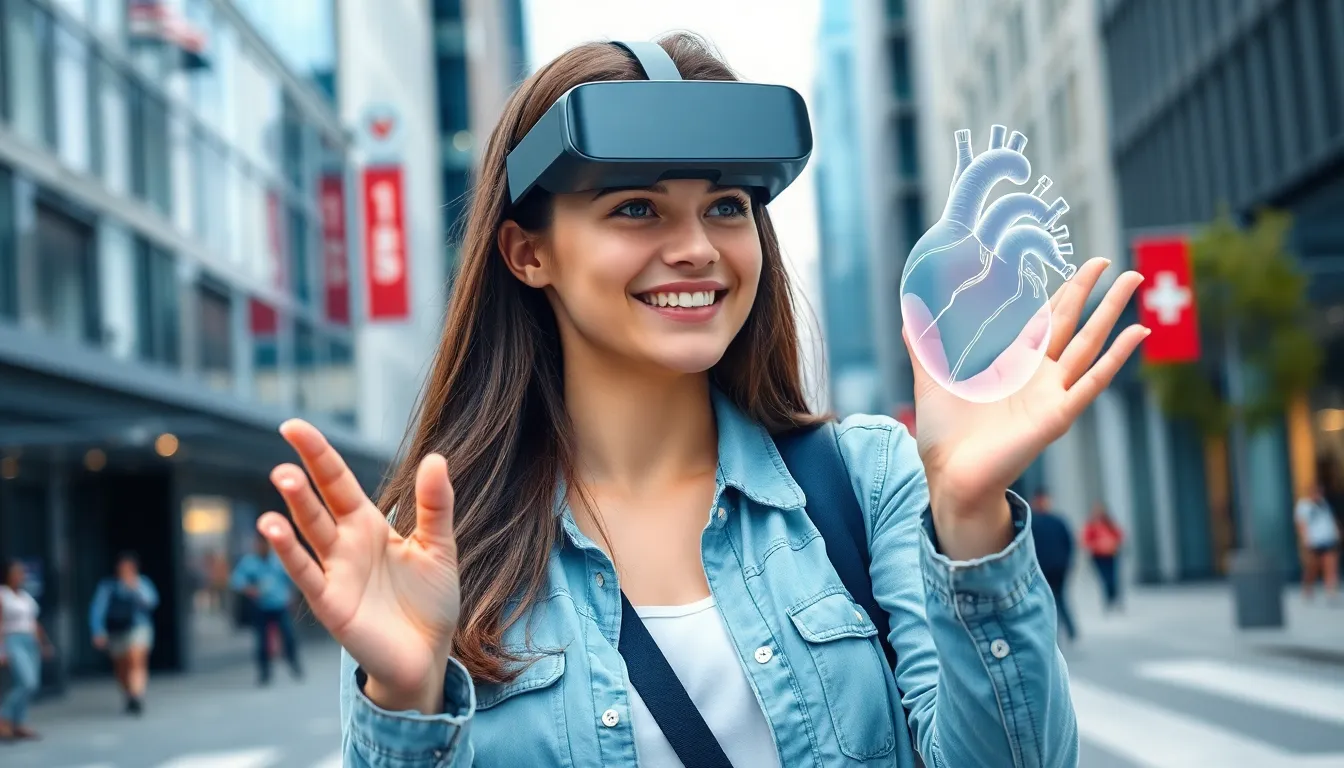Mobile technology is evolving at a breathtaking pace, transforming the way people communicate, work, and live. With each advancement, new possibilities emerge, reshaping industries and enhancing user experiences. From artificial intelligence integration to the rise of 5G networks, these innovations are not just trends; they’re the future of connectivity.
As smartphones become more powerful and versatile, the demand for cutting-edge applications and seamless experiences grows. Emerging mobile technologies are paving the way for smarter devices that anticipate user needs and streamline daily tasks. This article delves into the latest breakthroughs in mobile technology and explores how they’re set to revolutionize our lives in the coming years.
Table of Contents
ToggleOverview of Emerging Mobile Technologies
Emerging mobile technologies are reshaping the landscape of connectivity and application development. Notable advancements include:
- Artificial Intelligence (AI): AI enhances mobile app functionalities through personalized recommendations, voice recognition, and predictive text, making interactions more intuitive.
- 5G Networks: The rollout of 5G networks supports faster download speeds, lower latency, and greater capacity, enabling seamless streaming and improved IoT device connectivity.
- Augmented Reality (AR): AR technologies integrate digital elements with the real world, offering immersive experiences in gaming, education, and retail, thus enhancing user engagement.
- Mobile Payments: Mobile payment systems, like digital wallets and contactless transactions, facilitate secure and convenient financial transactions, driving the growth of e-commerce.
- Foldable Devices: Foldable smartphones introduce innovative form factors that combine portability with enhanced screen real estate, allowing for multitasking and productivity.
- Internet of Things (IoT) Integration: Integration of mobile platforms with IoT devices creates a cohesive ecosystem where users control smart home devices and appliances through their smartphones.
- Edge Computing: Edge computing minimizes latency by processing data closer to the source, benefiting applications requiring real-time data analysis, such as autonomous vehicles and smart city infrastructure.
- Voice Assistants: Advances in voice recognition technology enhance the functionality of voice assistants, providing hands-free control and improved accessibility across mobile devices.
These technologies not only improve existing functionalities but also pave the way for innovative applications that significantly enhance user experiences and drive future developments in mobile technology.
Key Trends Driving Innovation

Emerging mobile technologies shape the landscape of connectivity and enhance user experiences. Key trends driving this innovation include 5G technology and artificial intelligence.
5G Technology
5G technology delivers increased data speeds, reduced latency, and enhanced capacity, revolutionizing mobile connectivity. With peak download speeds exceeding 10 Gbps, 5G supports real-time applications and devices, making it essential for IoT ecosystems. Enhanced network reliability fosters advancements in autonomous vehicles and smart city infrastructures. Additionally, 5G enables improved video streaming quality and augmented reality experiences, further integrating mobile technology into everyday life.
Artificial Intelligence and Machine Learning
Artificial intelligence (AI) and machine learning (ML) transform mobile applications by offering intelligent solutions and personalization. AI algorithms analyze user data to provide tailored experiences, such as personalized recommendations and predictive text features. Machine learning enhances voice recognition systems, making voice assistants more accurate and responsive. These technologies also optimize app performance and user engagement by analyzing patterns and behaviors, ensuring that applications evolve with user needs. Mobile AI solutions encompass everything from health monitoring to virtual personal shopping assistants, illustrating their diverse functionality across multiple sectors.
Impact on Consumer Behavior
Emerging mobile technologies significantly influence consumer behavior, shaping how individuals interact, shop, and communicate. Key trends illustrate this evolution.
Mobile Commerce Growth
Mobile commerce has surged, driven by advancements in mobile technology. With faster internet speeds from 5G networks and seamless mobile payment systems, consumers engage in online shopping more frequently. In 2023, it accounted for over 50% of global e-commerce sales, reflecting a shift toward mobile-based transactions. Retailers now prioritize mobile-friendly websites and apps to enhance user experiences, implementing personalized marketing strategies powered by AI. These strategies boost customer engagement and conversion rates. Enhanced security measures in mobile payment transactions further instill consumer confidence, leading to higher spending levels.
Changing Communication Patterns
Changing communication patterns emerge as mobile technologies evolve. Instant messaging apps and social media platforms dominate interactions, with 90% of users favoring messaging over traditional phone calls. This trend stems from the convenience and immediacy that mobile devices provide, allowing for real-time communication. Furthermore, video calls have increased in popularity, especially with the rise of remote work. This shift changes how businesses interact with customers and colleagues, promoting more dynamic and visual forms of engagement. The integration of AI-powered chatbots improves customer service efficiency, providing immediate responses and assistance, enhancing overall consumer satisfaction.
Future Prospects and Predictions
Emerging mobile technologies promise significant advancements across multiple sectors. Predictions indicate that 6G will emerge by 2030, delivering even faster data transfer rates, with estimates exceeding 100 Gbps. It aims to integrate advanced technologies like AI and blockchain, enhancing connectivity and security.
Artificial intelligence will continue evolving, with machine learning techniques improving app capabilities. Developers will leverage AI to create more adaptive applications that anticipate user needs and offer personalized experiences. Voice recognition technology is expected to advance, making interactions more natural and intuitive.
The Internet of Things (IoT) expansion will enhance smart home technology, providing seamless device integration. Predictions suggest that by 2025, there will be over 75 billion connected devices globally. Smart devices will offer greater automation and control, making daily life more efficient.
Augmented reality (AR) will gain traction in retail, education, and entertainment. By 2024, the AR market is projected to reach $198 billion, enhancing user experiences through immersive content. Retailers will adopt AR for virtual try-ons, improving consumer confidence and satisfaction.
Mobile payment systems will also advance, integrating biometric verification for increased security. Predictions indicate that mobile payments will account for more than 30% of global digital payments by 2024. Enhanced transaction speeds and user-friendly interfaces will bolster consumer adoption.
Overall, the future of mobile technology is characterized by increased connectivity, enhanced user experiences, and innovative applications that will fundamentally transform communication, commerce, and everyday interactions.
Challenges and Considerations
Emerging mobile technologies present several challenges and considerations that stakeholders must address for successful implementation and user adoption.
Security Concerns
Security issues prominently arise as mobile technologies expand. Cybersecurity threats, including data breaches and malware attacks, significantly endanger user privacy and sensitive information. Companies must invest in robust security measures and encryption protocols to safeguard user data.
Infrastructure Limitations
Infrastructure constraints pose a challenge, particularly in rural and underserved areas. The rollout of 5G networks requires extensive investment in infrastructure, impacting connectivity. Ensuring equitable access and coverage remains vital for maximizing the benefits of new technologies.
Regulatory Issues
Regulatory hurdles complicate the deployment of emerging technologies. Compliance with data protection regulations, such as GDPR, adds layers of complexity for businesses. Navigating these regulations is essential to avoid legal repercussions and maintain consumer trust.
User Adoption
User adoption poses a significant barrier, as not all individuals are equipped to adapt to rapid technological changes. Variability in tech-savviness among different demographics influences overall acceptance. Providing education and support can help bridge this gap.
Environmental Impact
The environmental impact of mobile technology cannot be overlooked. Increased device production and data center energy consumption raise concerns about sustainability. Developing eco-friendly practices and addressing e-waste management is crucial for minimizing the ecological footprint.
Integration Challenges
Integration with existing systems presents a considerable challenge. Enhancing interoperability between new and legacy systems requires significant effort. Adopting seamless integration strategies will improve the user experience and operational efficiency.
Cost Considerations
Financial factors significantly influence the deployment of emerging mobile technologies. The high costs associated with research, development, and implementation can deter smaller enterprises from entering the market. Evaluating return on investment (ROI) becomes essential for justifying these expenses.
Addressing these challenges enables stakeholders to leverage emerging mobile technologies effectively while ensuring sustainability, security, and user satisfaction.
Emerging mobile technologies are set to redefine how individuals connect and interact with the world. With advancements like 5G and AI paving the way for faster communication and smarter applications, the landscape of mobile connectivity is evolving rapidly.
As these technologies continue to develop, they promise to enhance user experiences and drive innovation across various sectors. However, addressing challenges such as security, infrastructure, and user adoption will be crucial for realizing the full potential of these advancements.
The future holds exciting possibilities for mobile technology, and staying informed about these trends will be essential for consumers and businesses alike. Embracing these changes will not only enhance daily life but also shape the next generation of digital interactions.






